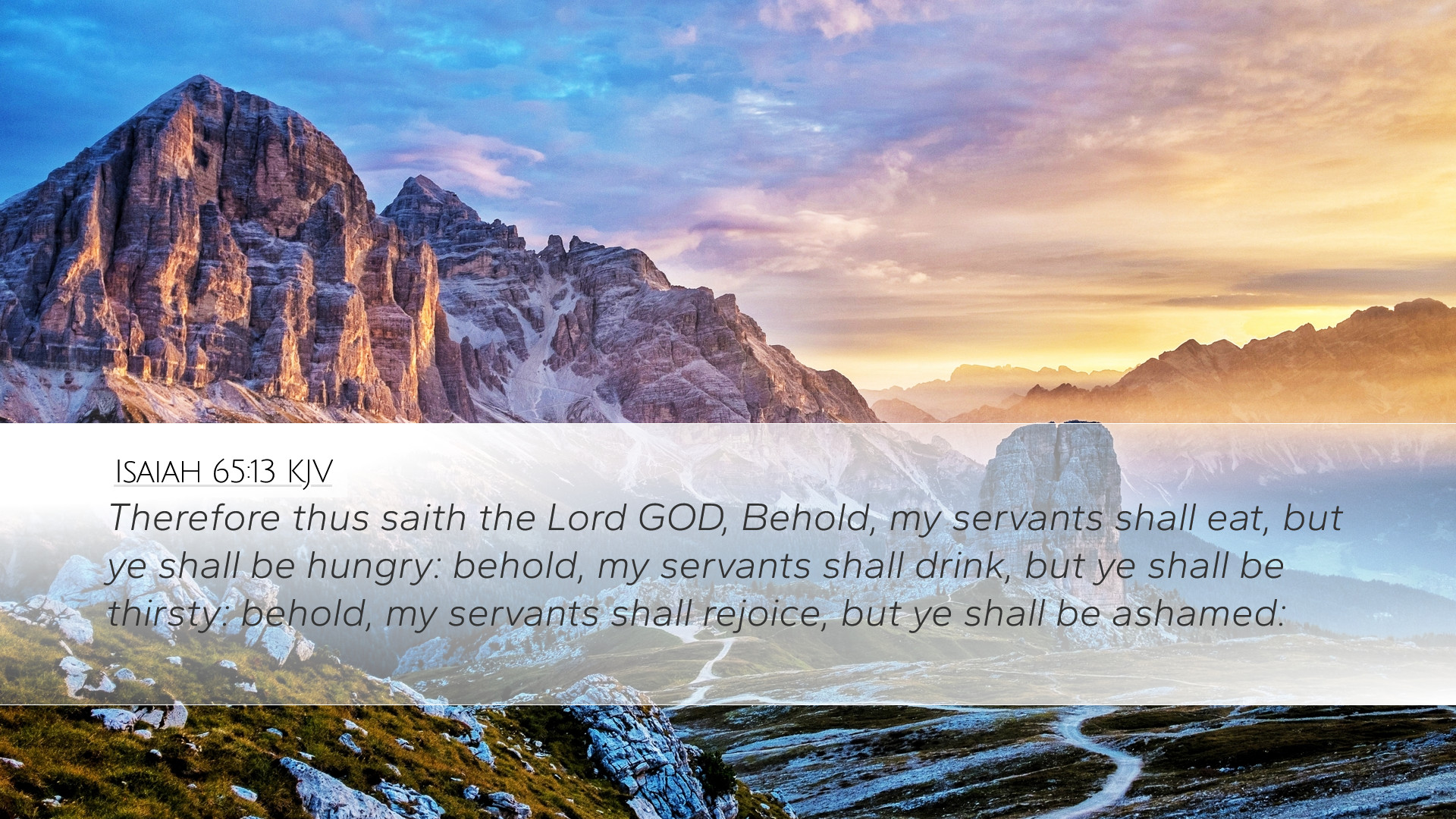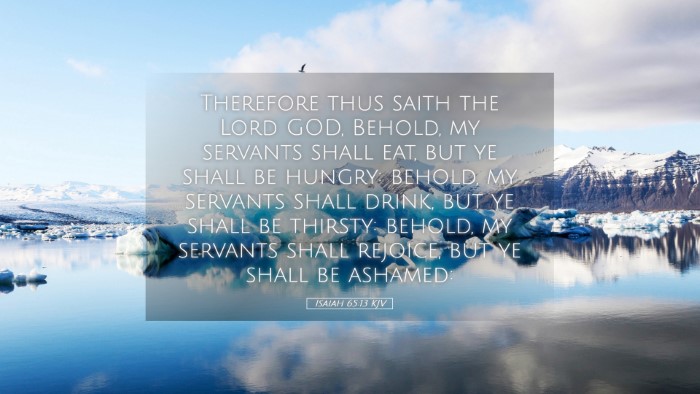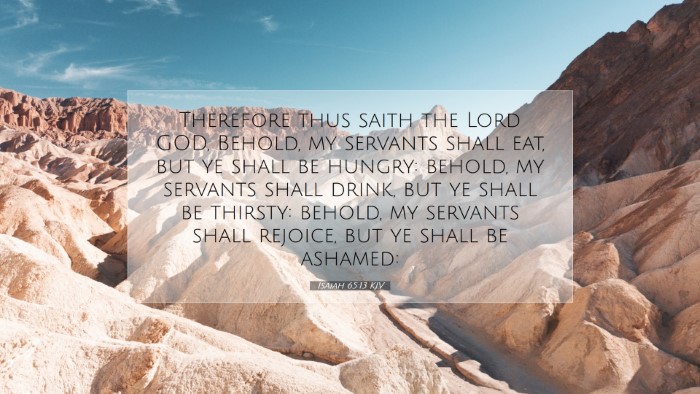Commentary on Isaiah 65:13
Isaiah 65:13 states: "Therefore thus saith the Lord God, Behold, my servants shall eat, but ye shall be hungry: behold, my servants shall drink, but ye shall be thirsty: behold, my servants shall rejoice, but ye shall be ashamed." This passage reflects profound theological themes and provides insights into the nature of God’s justice, judgment, and the dichotomy between His people and those who oppose Him.
Context and Overview
Isaiah's prophecies reach their apex in his declaration of God's sovereignty and the ultimate fate of His people. The chapter sets a vivid contrast between the fates of the righteous and the wicked, showcasing the blessings upon those who serve God and the desolation awaiting those who reject Him.
The Servants of God
Matthew Henry's Commentary notes that the phrase "my servants shall eat" signifies not only the physical sustenance provided by God but also a spiritual nourishment that the faithful receive. This underscores a covenantal relationship where God fulfills His promises to those who are loyal to Him. The imagery of eating and drinking can signify partaking in the blessings of salvation and life eternal.
Furthermore, Albert Barnes emphasizes how the term "servants" refers to those who truly serve God in spirit and truth, contrasting them with those who are rebellious. The assurance given to God’s servants is a testament to God's protection and provision, pointing to the covenantal blessings promised to Israel.
Opposition and Judgment
In stark contrast, the latter portion of Isaiah 65:13 warns that those who oppose God "shall be hungry". Adam Clarke elaborates that this hunger is not merely physical but reflects a deeper spiritual famine. Those who turn from God find themselves lacking, not only in material needs but also in spiritual fulfillment. Clarke poignantly remarks that the wicked will experience shame, which denotes a loss of dignity and honor before God.
Divine Justice
The contrasting fates presented in this verse draw attention to divine justice. Matthew Henry asserts that this is a critical assurance for believers; they are reminded that despite their current struggles, God will ultimately provide for them. Henry encourages believers to find solace in this truth, recognizing that God’s promise stands firm even amidst opposition.
Moreover, Albert Barnes points to the future implications of this promise; it includes not only temporal satisfaction but also spiritual fulfillment in eternity. The disparity between God's servants and the unrighteous is not merely for this life but echoes into eternal significance.
Theological Implications
Theologically, Isaiah 65:13 touches upon significant themes such as grace, retribution, and the character of God. Adam Clarke emphasizes that God's nature is to reward the faithful and judge the wicked, relying on His perfect justice and mercy.
- Grace: The promise of God’s provision signifies grace extended to His servants, who have placed their faith in Him.
- Retribution: The hunger and shame experienced by the wicked serve as a stark reminder of the consequences of turning away from God.
- Character of God: This passage illustrates God’s unwavering commitment to bless His people while maintaining His righteous indignation against injustice.
Practical Applications
This passage offers rich practical applications for modern believers:
- Encouragement for Faithful Service: This verse reassures followers of Christ that their perseverance in faith and obedience will be rewarded.
- Call to Spiritual Apathy: Believers are prompted to evaluate their commitment to God, recognizing the eternal implications of their faithlessness.
- Understanding of God’s Provision: The faithful can rest in God's promises, knowing that He cares for their needs in both spiritual and physical aspects.
Conclusion
Isaiah 65:13 serves as an evocative reminder of the dichotomy between the righteous and the unrighteous. The promises of sustenance, joy, and security for God's servants stand in strong contrast to the dire consequences for those who turn away. This passage remains a crucial text for pastors, students, and theologians, as it encapsulates key aspects of God’s nature and His expectations for His people.


